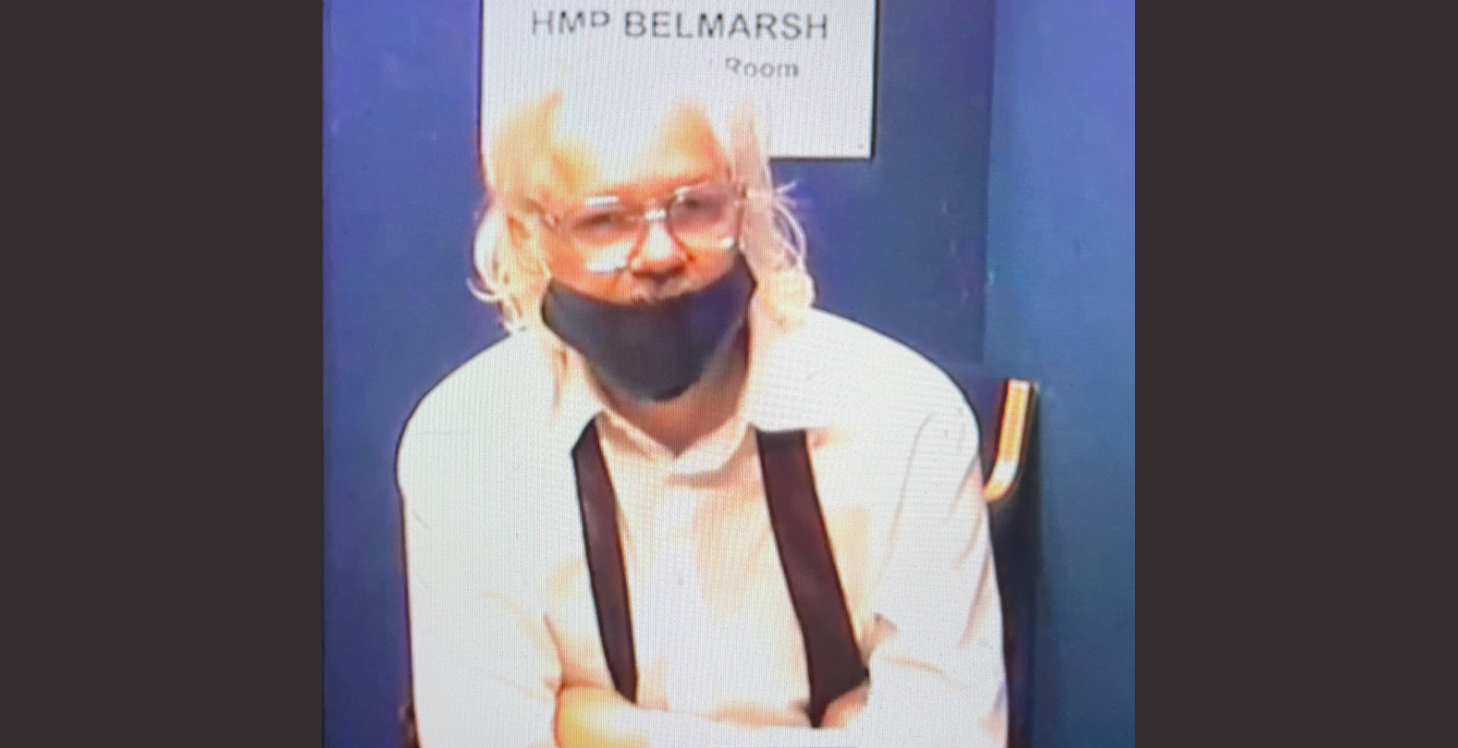The recent visit by the Australian High Commissioner in the United Kingdom, Stephen Smith, to see Julian Assange in Belmarsh Prison is welcome news to supporters and sends a strong political message.
The Foreign Affairs Minister Penny Wong’s speech in London on 31 January 2023 in effect stressed the importance of the law being obeyed and the requirement to “uphold the agreed international rules that underwrite our stability, prosperity and sovereignty”.
Encouraged by this, Julian’s father, John Shipton, wrote to the UK High Commissioner on 3 February 2023 highlighting the breaches of due process, conventions and laws in his son’s case.
He requested that Stephen Smith visit his son. Although there’s now been that visit, on 4 April 2023, confusion remains about what, if anything, the Australian Government will actually do.
On 19 March 2023, Arthur Sinodinos, the outgoing Ambassador to the United States, had this advice for his replacement, Kevin Rudd: “My broad advice to him is bring every advantage that Australia has to the table like, we have a lot of information, intelligence back home – and we leverage that quite a bit here in DC – but every possible advantage to engage the Americans….Australia should not underestimate how influential we are or can be in this town…”
Our unspoken leverage extends as always to the American military bases. But the coming of the AUKUS pact and the US moves for militarisation of Australia in its campaign of intimidation against China, give us an even stronger hand.
In March the Minister for Foreign Affairs & Trade, Penny Wong, said, “Whilst we are doing what we can between government and government there are limits until Mr Assange has concluded the legal processes.”
Penny Wong is correct on a legal level about the separation of powers and rule of law in relation to the United Kingdom proceedings, but that has absolutely nothing to do with American actions.
Australia needs to realise that there is a pathway that would see the US follow the precise rule of law, and release Assange immediately.
Under the US Constitution there is no limitation on a President’s legal power to pardon except in impeachment cases. As to prosecutions, they are an Executive action taken by the Executive, and Article II Section 1 of the US Constitution gives the President power over the Executive without limitation.
As Bruce Fein, international lawyer and former US Associate Deputy Attorney-General, told Al Jazeera English on 4 April 2023: “As a practical matter, if Mr Biden wanted to end this overnight he has the authority to override the Pentagon, the NSA, or anybody else. They’re all subordinate to him. He has civilian supremacy over the military.”
There are academic arguments that the President’s authority to direct prosecutions or stop prosecutions as an Executive act is limited by long-standing practice and convention, but whether the current US Supreme Court, with its tendency to literal interpretation, would ‘make up’ words of limitation to an unlimited constitutional grant of authority must be seriously in doubt.
Absent any such lawful limitation, the President, or his Attorney-General at any time, can direct the cessation of the prosecution of Assange and withdraw the request for extradition. This can be done irrespective of any Court proceedings in the United Kingdom, because both the foundational alleged offences and the extradition request originate solely from the US.
Julian Assange could be released tomorrow if the President agreed – and he will no doubt be pressed hard on this matter when he visits Australia in May.
If such a limitation was considered by the President to exist, it may be possible for Assange to move to dismiss the prosecution in the United States as an abuse of process.
This argument originates from the charges having been brought in obedience to a Trump presidential directive rather than a lawful exercise of prosecutorial discretion, that apparently were exercised earlier in Assange’s favour by the Obama administration making the decision not to prosecute Assange.
Alternatively, assuming Joe Biden is reluctant to direct the Department of Justice to drop the extradition case, whether because of what happened when the Trump Administration interfered with the Department of Justice, or because of internal pressures from security agencies etc or for any other reason, he can simply give a pardon to Assange immediately.
With his considerable political experience Joe Biden should be able to manage any internal pressure against pardoning Assange and he would enhance rather than diminish his electoral prospects – particularly in the current climate of political mistrust of governments and politicians – by standing up resolutely for press freedom and freedom of speech.
Both Joe Biden and the Australian Government must know that, and if Assange is pardoned by Joe Biden the whole basis for the Justice Department extradition disappears. The requirement to then properly accommodate the British justice system would involve no more than Assange once pardoned, formally withdrawing his appeal.
The difficulty for Assange is that if he withdraws the appeal before that, and remains in the British system, there’s no guarantee – and, given the history of this matter as I previously reported in Declassified Australia, no reason to believe – that the Australian Government will do anything, let alone make a concerted effort to secure his release.
And as to the UK, Australia doing nothing on the principles – or under the pretext – of respect for the separation of powers and rule of law completely ignores a political option Greg Barns SC reminded me of: Australia can press UK Prime Minister Rishi Sunak to have his Home Secretary simply revoke the extradition approval given in July 2022, a completely extra-judicial process.
Apart from being a move that would find popular support in the UK, US and Australia, it would permit the UK to give appropriate credit to the findings made in the original court decision about risks to Assange’s health.
It would also claim compliance with the recommendation of the UN Special Rapporteur on Torture, who called for his immediate release due to suffering treatment that amounted to torture. And it would save face for the US and Australia by ostensibly leaving them out of it..
As I have previously reported in Declassified Australia, if the Australian Government is aiming for a political fix which requires Assange to be extradited to the United States with a prisoner transfer to be on the table, it runs the very real risk that Assange would not agree to it.
Apart from being a person of high principle, he is the one who would have to survive the US prisoner transfer. It must be remembered that Assange has already stated that he will not go along with extradition to the US – with all that implies.
And if he did survive to actually be extradited to the US, the Australian Government should be prepared to wear the stain of endorsing a precedent that will forever affect press freedom the world over.






